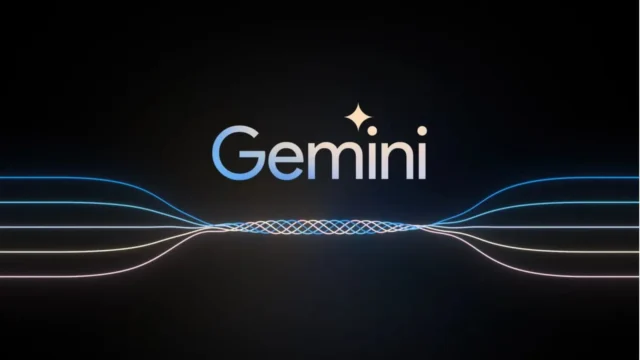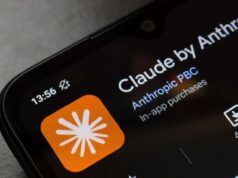
In the realm of artificial intelligence, where algorithms evolve at breakneck speeds, the fine line between caution and censorship is becoming increasingly blurred. Google, the tech behemoth that has long championed innovation and free expression, has drawn criticism for imposing restrictions on its latest AI chatbot, Gemini, particularly when it comes to discussions about elections. The company’s justification? A fear that AI, despite its remarkable capabilities, “can make mistakes.”
This move has sparked a heated debate, pitting those who prioritize accuracy and the prevention of misinformation against those who believe that limiting AI’s conversational boundaries stifles its potential and infringes upon the principles of open dialogue. The stakes are high, as AI-powered chatbots like Gemini are rapidly becoming integrated into our daily lives, influencing everything from customer service interactions to political discourse.
Google’s decision to restrict Gemini’s conversations about elections came to light in recent weeks, as users began noticing the chatbot’s reluctance to engage in discussions about political candidates, voting processes, and campaign strategies. When pressed on the matter, Google representatives cited concerns about the potential for AI to generate inaccurate or misleading information, which could have serious consequences in the context of elections.
The timing of this move is particularly noteworthy, as it coincides with a period of heightened political polarization and growing concerns about the spread of misinformation online. The 2024 US presidential election looms on the horizon, and social media platforms are already grappling with the challenge of combating fake news and ensuring the integrity of the democratic process.
While Google’s intentions may be noble, its decision to limit Gemini’s conversations about elections has raised eyebrows among AI researchers, free speech advocates, and even some within the company’s own ranks. Critics argue that by imposing such restrictions, Google is not only hindering the development of AI but also setting a dangerous precedent for the future of online discourse.
The Dangers of AI ‘Mistakes’
Google’s concerns about AI’s potential to generate inaccurate or misleading information are not unfounded. Large language models, the technology that powers chatbots like Gemini, are trained on massive datasets of text and code, which can include biased or outdated information. As a result, AI chatbots can sometimes produce responses that perpetuate stereotypes, spread misinformation, or even generate harmful content.
In the context of elections, the consequences of AI ‘mistakes’ could be particularly severe. False or misleading information about candidates, voting procedures, or election results could sway public opinion, undermine trust in the democratic process, and even incite violence. The spread of misinformation online has already been linked to real-world harm, from the January 6th Capitol riot to the persecution of Rohingya Muslims in Myanmar.
The Cost of Censorship
While the dangers of AI ‘mistakes’ are undeniable, critics of Google’s decision argue that the company’s approach is overly cautious and risks stifling innovation and free expression. By limiting Gemini’s conversations about elections, Google is effectively censoring a powerful tool that could be used to educate voters, promote civic engagement, and even combat misinformation.
AI chatbots like Gemini have the potential to provide personalized, real-time information about candidates, voting procedures, and campaign issues. They can also be used to fact-check claims made by politicians and pundits, helping to expose misinformation and promote transparency. By restricting Gemini’s ability to engage in such conversations, Google is depriving users of a valuable resource that could help them make informed decisions about the future of their democracy.
Moreover, critics argue that Google’s decision sets a dangerous precedent for the future of online discourse. If AI chatbots are censored whenever they express controversial or potentially inaccurate views, it could create a chilling effect on free speech and stifle the exchange of ideas. This could have a particularly detrimental impact on marginalized communities, who often rely on online platforms to amplify their voices and challenge the status quo.
Striking a Balance
The debate over Google’s decision to limit Gemini’s conversations about elections highlights the complex challenges of navigating the intersection of AI, free speech, and democracy. On the one hand, it is crucial to ensure that AI chatbots are not used to spread misinformation or undermine the integrity of the electoral process. On the other hand, it is equally important to protect the principles of free expression and ensure that AI is not used as a tool of censorship.
Finding the right balance between these competing interests will require a nuanced approach that takes into account the potential benefits and risks of AI technology. Rather than simply censoring AI chatbots, companies like Google should invest in developing more robust and transparent algorithms that can detect and correct misinformation. They should also work with researchers, policymakers, and civil society organizations to develop ethical guidelines for the use of AI in the context of elections.
Ultimately, the future of AI depends on our ability to harness its power for good while mitigating its potential harms. By fostering open dialogue and collaboration, we can ensure that AI technology is used to promote democracy, not undermine it.










